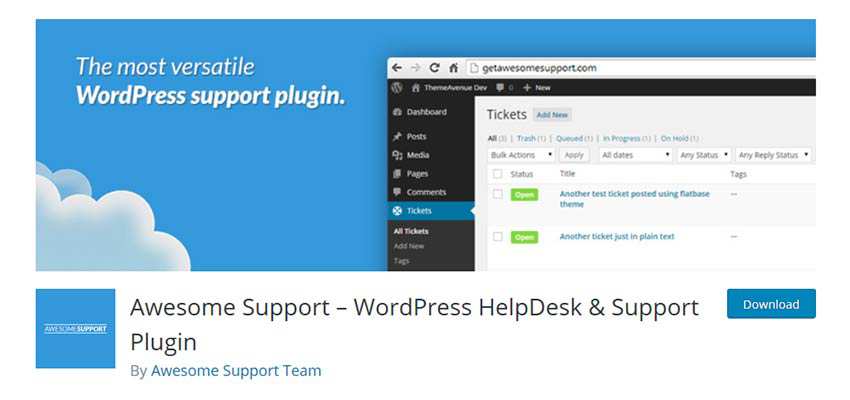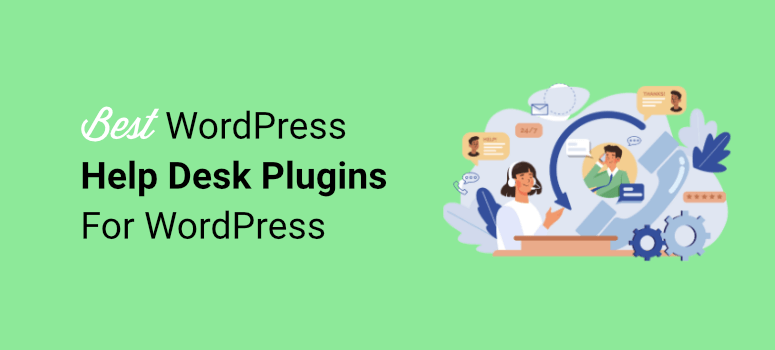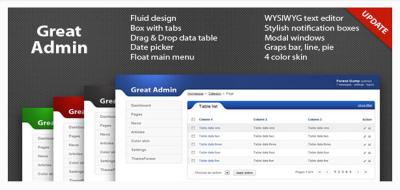If you’re diving into the world of WordPress, whether you’re a newbie or a seasoned user, at some point you’ll hit a snag or have a question. That’s totally normal! Luckily, there are plenty of resources and tools out there to help you troubleshoot issues, learn new skills, or just get some inspiration. From official forums to expert blogs, the right support can make your WordPress journey smoother and more enjoyable. In this post, we’ll explore some of the best resources and tools to get you the support you need so you can build and maintain your website with confidence.
Official WordPress Support Forums and Community

The Official WordPress Support Forums are the go-to place for help directly from the WordPress community and volunteers. These forums are a vibrant hub where users from around the world ask questions, share solutions, and discuss best practices. Whether you’re dealing with plugin conflicts, theme issues, or beginner questions, you’ll find a welcoming community ready to assist you.
Here’s what makes the official forums a top resource:
- Active Community: Thousands of experienced users, developers, and volunteers regularly contribute, ensuring your questions get answered quickly.
- Structured Categories: Support topics are organized into categories like installation, themes, plugins, security, and more, making it easier to find relevant discussions or post your question.
- Search Functionality: Before posting, you can search the forums to see if your issue has already been discussed or solved.
- Free and Open: Access to the forums is completely free, and you don’t need to be a developer or tech expert to ask questions or learn from others.
To get started, simply head to the WordPress Support Forums and create an account if you want to participate actively. When posting, be sure to include detailed information about your issue, such as:
- Your WordPress version
- Details about your theme and plugins
- A clear description of the problem
- Steps to reproduce the issue, if applicable
Besides the support forums, the WordPress community also hosts local meetups, WordCamps, and online groups like Facebook communities and Slack channels. These platforms are fantastic for networking, learning from others, and even finding mentorship. Remember, the key to getting effective support is to be clear, patient, and open to suggestions. With these resources, you’ll find that most WordPress issues are manageable and often turn into learning opportunities!
3. Utilizing WordPress Documentation and Guides

If you’re diving into WordPress, one of the best places to start is right at the source — the official WordPress documentation and guides. These resources are packed with detailed, up-to-date information that can help you troubleshoot issues, learn new features, and understand best practices. The good news is, they’re designed to be user-friendly, even if you’re new to the platform.
When you visit the WordPress Support page, you’ll find a treasure trove of helpful articles, FAQs, and tutorials. The documentation covers everything from basic setup to advanced customization, making it a great reference whether you’re tweaking a theme or installing plugins.
Here are some tips for getting the most out of the WordPress documentation:
- Search smart: Use the search bar to quickly find topics relevant to your issue or question.
- Check the version: Make sure you’re reading documentation for your current WordPress version, as features can change over time.
- Follow the step-by-step guides: Many articles include clear instructions, screenshots, and tips to walk you through complex tasks.
- Explore developer resources: If you’re a developer or interested in customizing code, the Developer Handbook is a goldmine for functions, hooks, and API details.
Another valuable resource is the WordPress Codex. Though it’s a bit more technical, it offers comprehensive documentation on almost every aspect of WordPress. Think of it as the ultimate manual for the platform. Whether you’re learning about theme development, security best practices, or plugin creation, the Codex has you covered.
Remember, the official resources are maintained by the WordPress community and core team, so they’re trustworthy and regularly updated. Whenever you hit a snag, your first stop should often be these guides—they’re free, reliable, and full of insights from the folks who built WordPress.
4. Finding Help Through Online Tutorials and Video Courses

If reading documentation isn’t your thing or you prefer a more visual approach, online tutorials and video courses are fantastic resources. They offer step-by-step walkthroughs, real-world examples, and often include demonstrations that make complex tasks much easier to understand.
Platforms like YouTube are packed with channels dedicated to WordPress tutorials. Popular creators often upload videos on everything from setting up your site, customizing themes, optimizing for SEO, to troubleshooting common issues. Some channels even host live Q&A sessions where you can ask questions in real time.
Besides YouTube, there are dedicated online learning platforms such as:
- Udemy: Offers comprehensive WordPress courses, often including lifetime access and updates. These courses range from beginner to advanced levels.
- LinkedIn Learning: Provides professional courses focusing on business-oriented WordPress skills, like eCommerce setup or site security.
- WP101: Specializes in beginner-friendly video tutorials, perfect if you’re just starting out.
- Coursera and Skillshare: Offer courses from university instructors and industry experts covering various aspects of WordPress development and management.
One of the biggest advantages of video tutorials and courses is that they often include practical exercises and downloadable resources. Plus, the visual element helps you see exactly how certain features work, reducing confusion and making learning more engaging.
Another tip is to join online communities or forums associated with these courses. Many instructors foster active groups where students can ask questions, share tips, and troubleshoot together. This sense of community can be incredibly motivating and helpful when you’re learning something new.
Whether you’re a visual learner or just prefer guided instruction, online tutorials and video courses can accelerate your WordPress mastery, helping you build a website you’re proud of in no time.
5. Engaging with WordPress Social Media Groups and Forums
When you’re working with WordPress, one of the best ways to get quick help and connect with fellow users is by diving into social media groups and forums. These platforms are like bustling digital neighborhoods where enthusiasts, developers, and support experts gather to share tips, troubleshoot issues, and celebrate wins.
Platforms like Facebook, Reddit, and Slack host active WordPress communities. For example, the WordPress Support Forum on Reddit is a treasure trove of real-world advice. You can ask questions, browse existing threads, or even offer your expertise to others. Similarly, Facebook groups such as Advanced WordPress or WordPress Help & Share are lively hubs where members post their queries and solutions daily.
Joining these groups is simple—just sign up and start participating. The key is to be specific about your problem, include details like your website URL, plugins you’re using, and any error messages. The community members are generally friendly and eager to help, but remember to follow each group’s rules and etiquette.
Forums like the WordPress.org Support Forums are also excellent resources. They’re run by the WordPress community itself and cover a wide range of topics from troubleshooting plugins to theme customization. Browsing through existing threads can often lead to quick solutions without even needing to post.
Engagement in social media groups and forums isn’t just about getting help. It’s also about learning. Seeing how others solve problems can teach you new tricks and best practices. Plus, building relationships in these communities can lead to collaborations or even finding a mentor in the WordPress world.
Just a quick tip: Be patient and polite. Sometimes, support can take a little time, especially in busy groups. And always try to be clear and respectful—everyone there is passionate about WordPress just like you!
6. Premium Support Services and Professional WordPress Developers
If your website is critical for your business or you’re dealing with complex issues, sometimes the best support comes from the pros. Investing in premium support services or hiring professional WordPress developers can save you a lot of time and stress.
Premium support services are specialized companies or agencies that offer dedicated assistance for WordPress sites. They often provide services like security monitoring, speed optimization, custom development, and emergency troubleshooting. Some popular options include companies like WP Site Care, WP Buffs, and WP Site Support. These services usually operate on a subscription basis, giving you peace of mind knowing expert help is just a click away.
Why consider these services? Well, they have teams of experienced developers who can handle tricky technical issues, perform regular backups, update plugins and themes safely, and even customize your site’s features. This is especially valuable if you’re not comfortable with coding or don’t have the time to learn.
Alternatively, hiring a professional WordPress developer for a one-time project or ongoing support can be a game-changer. You can find skilled developers through platforms like Upwork, Freelancer, or specialized WordPress freelance networks. When choosing a developer, look for someone with proven experience, good reviews, and a clear understanding of your project goals.
Working with a professional offers personalized support tailored to your site’s specific needs. They can help with:
- Custom theme or plugin development
- Site migrations
- Security audits
- Performance improvements
- Training on WordPress best practices
While premium services involve an investment, they often pay off by ensuring your website runs smoothly, securely, and efficiently. Plus, having a dedicated expert on call provides peace of mind—knowing you have support for those unexpected issues or big upgrades.
In summary, whether you choose to engage with vibrant communities or hire professional developers, the key is to find the support method that best fits your website’s needs and your comfort level. Combining community engagement with professional help can give you a well-rounded support system to keep your WordPress site thriving.
7. Tips for Effectively Seeking Support and Troubleshooting
Getting help when you’re stuck on your WordPress site can sometimes feel overwhelming, but with the right approach, troubleshooting becomes much easier. Here are some practical tips to help you seek support effectively and resolve issues more efficiently.
Understand the Problem Clearly
Before reaching out for help, take a moment to clearly define what the issue is. Ask yourself questions like:
- When did the problem start?
- What specific actions lead to the issue?
- Are there any error messages? If so, what do they say?
- Have you recently installed new plugins or themes?
Writing down these details will make it easier for others to understand your problem and provide targeted advice.
Use the Right Support Channels
WordPress has a vibrant community, and support can come from various sources:
- Official Forums: Great for general questions and community help.
- Plugin & Theme Support: Use the support sections on the WordPress.org repository or the developer’s website.
- Hosting Provider Support: If the issue seems related to server settings, your hosting provider can help.
- Social Media & Communities: Platforms like Twitter, Reddit, or Facebook groups dedicated to WordPress can be helpful.
Search Before Asking
Many issues are common, and chances are, someone else has already faced and solved the same problem. Use search engines and include specific details like error messages or plugin names. This can save you time and help you find solutions faster.
Share Relevant Details Clearly
When asking for support, provide:
- A concise description of the problem
- The steps to reproduce the issue
- Any error messages or screenshots
- Details about your WordPress setup (version, plugins, theme)
This comprehensive information helps others diagnose and assist more effectively.
Be Patient and Polite
Remember, support communities are made up of volunteers. Be patient, respectful, and thankful for any help you receive. Clear communication and politeness go a long way!
Maintain Regular Backups
Before troubleshooting or making significant changes, always back up your site. This way, if something goes wrong, you can restore your site to a working state without stress.
8. Conclusion and Additional Resources for WordPress Assistance
Getting support for your WordPress site doesn’t have to be daunting. Whether you’re troubleshooting an issue, looking to optimize your site, or exploring new features, there are plenty of resources available to guide you. The key is to leverage the right tools, communities, and knowledge bases effectively.
Remember, the WordPress ecosystem is built around community support and shared knowledge. Don’t hesitate to ask questions, share your experiences, and learn from others. As you become more familiar with common issues and their solutions, troubleshooting will become faster and more intuitive.
Additional Resources to Keep Handy
| Resource | Description |
|---|---|
| WordPress.org Support Forums | Official community forum for questions and advice on a wide range of topics. |
| WPBeginner | A beginner-friendly site offering tutorials, guides, and troubleshooting tips. |
| WordPress Codex | The official documentation for WordPress, covering everything from basic setup to advanced features. |
| Support Plugins | Plugins like WP Debugging or Query Monitor can help identify issues directly within your site. |
| Hosting Provider Support | Often the first point of contact for server-related issues or configuration help. |
By utilizing these resources and adopting a calm, methodical approach, you’ll become more confident in managing your WordPress site and resolving issues as they arise. Happy troubleshooting!


